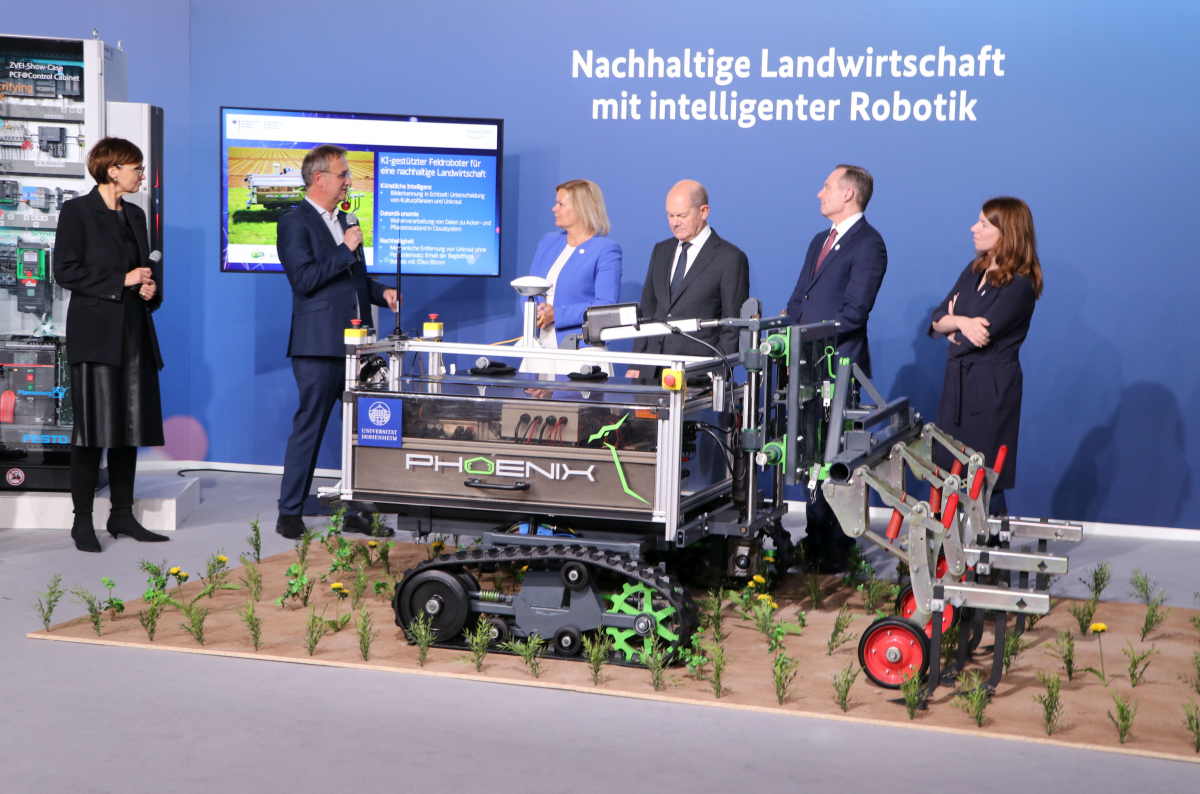NOcsPS consortium presents new agricultural robot to Chancellor Scholz
12.12.2022
The presented version of the agricultural robot was developed specifically with respect to the NOcsPS vision, i. e. agriculture without chemical-synthetic crop protection. The multifunctional robot is already in use on the experimental fields of the University of Hohenheim to significantly reduce the use of fertilizers and pesticides. This is made possible by the Internet of Things, in which robots and other machines communicate with each other via Internet as well, and by artificial intelligence, which evaluates large amounts of data from agriculture and the food industry, as Griepentrog explained to the chancellor.
"The front of the robot contains intelligent sensor technology that can distinguish crops from weeds," Griepentrog said. To do this, he said, the robot detects plants with camera and laser sensors and evaluates the data in real time using artificial intelligence. Due to its low self-weight of 420 kg and its belt drive, which is gentle on the soil, Phoenix also protects the soil from compaction. Used in a targeted manner, the robot can contribute to a climate- and environmentally-friendly agricultural economy.
The presentation of the so-called "Chancellor's Exhibits" was a highlight at the end of the Digital Summit 2022. At the two-day event in Berlin, members of the German cabinet exchanged views with representatives from business, science and society. As a platform for shaping the digital awakening, the Federal Government's Digital Summit claims to be an initiator, driver and showcase for digitialization in Germany and beyond.
In May 2022, NOcsPS scientists already presented the robot to the ministers of agriculture of the G7 countries who met for their conference at the University of Hohenheim.
